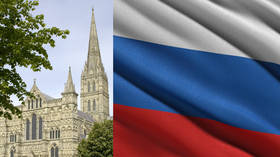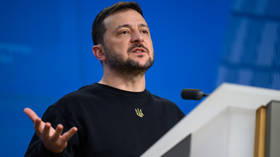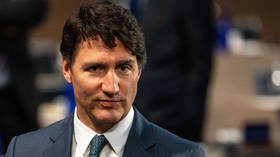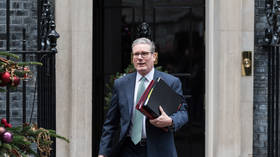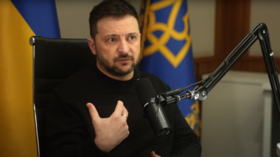'Blatant lies': Russia's London embassy rebuffs Mail article 'exposing' ambassador as KGB spy
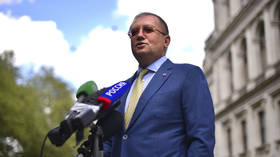
The Russian Embassy in the UK has dismissed as an anti-Russian smear a new 'bombshell' by the Mail on Sunday, which claims that Russian Ambassador to the UK Alexander Yakovenko was a failed spy, kicked out of the US in the 1980s.
The "investigation" by the newspaper alleged that Yakovenko, a career diplomat with the Russian Foreign Ministry, was one of scores of "senior intelligence officers" expelled by the Reagan administration in 1986 as part of a wide-ranging crackdown on Russian intelligence operatives.
According to the Mail, the US side gave Moscow a list of the first 25 names to be expelled from the country in October 1986.
While such allegations might ring a bell, the tabloid claims to have obtained documents showing that Yakovenko was part of the Kremlin's nefarious activity. The records allegedly reveal that Yakovenko was with the UN mission in March 1986, but not in October.
The Soviet mission shrank by 24 people during that period, according to the same document. That simple math, according to the paper, amounts to "damning" evidence that Yakovenko was part of the first batch of KGB spies to be sent home. It has dismissed as irrelevant the fact that, for some reason, there were only 24 names removed from the list, and not 25.
Upon graduating from the prestigious Moscow State Institute of International Relations, Yakovenko was indeed assigned to the Soviet mission at the UN, where he served from 1981 to 1986, the Russian Embassy in the UK said in its response to the paper. And while he did leave New York for Moscow in 1986, it was because his assignment ended, the embassy said.
"The information about his expulsion is blatant lies," it stated, demanding an apology from the Mail.
In support of its allegations, the newspaper cited a state decoration that Yakovenko received in 1996, wrongly describing the order "For Merit to the Fatherland" as a military award. The order is, in fact, a mixed civilian and military honor and can be given for a variety of achievements in an array of fields, such as culture and art, as well as for the advancement of peace and friendship, development of the Russian statehood, and for contribution to defense.
The embassy noted this fact and added that, while Yakovenko is a recipient of the Order II class, he received it in 1998 for his role in promoting space cooperation.
Yakovenko, the embassy said, was the head of the Russian delegation that negotiated the first launch of the International Space Station (ISS) in 1993-1998, a major intergovernmental project that saw Russia, the US, EU member states, Canada and Japan pooling their expertise.
Also on rt.com Give us FIVE! UK ‘security sources’ identify two more Skripal suspectsThe embassy argued that the timing of the 'scoop' is intended to coincide with the anniversary of the Skripal saga to deflect attention from the investigation, the results of which are still shrouded in secrecy.
"The embassy calls on the British government to lift the veil of secrecy, provide an opportunity to meet with the Russian citizens and stop a ham-handed, anti-Russian campaign in the British media," it said.
Russian Foreign Ministry spokesperson, Maria Zakharova, echoed the sentiment, chiding the British media for twisting the facts for click-baiting "fakes," which are needed to "draw away attention from the main question: What happened in Salisbury on March 4, 2018?"
"The tactic is not new and a very stupid one. But we are not to expect anything else from the current UK government that orchestrates campaigns in the media, based on constant 'leaks,'" Zakharova stated on Facebook.
Meanwhile, many questions are yet to be answered by London concerning the Salisbury and Amesbury poisonings, in which victims are claimed to have been affected by the same "military-grade" Novichok agent.
As the hope of getting answers fades away with the UK government's silence on the issue, Ewan Hope, the son Amesbury poisoning victim Dawn Sturgess, has written a letter to Russian President Vladimir Putin, asking him to allow the UK investigators to question two Russian nationals, who are alleged by the UK authorities to be behind the poisonings.
Also on rt.com Feeling ‘betrayed’ by UK, says ‘Novichok’ victim’s son in letter to PUTINThink your friends would be interested? Share this story!
